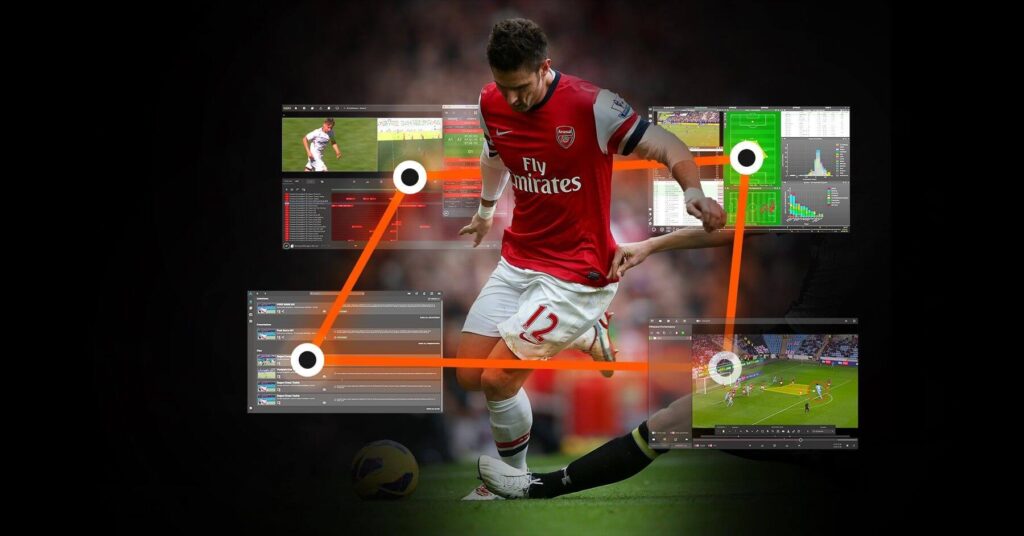3 Key Workflows Save Analysts 50 Hours Each Gameweek
Performance analysis is a vital aspect of sports, but it can also be incredibly time-consuming. With hours spent on reviewing and analysing footage, analysts often find themselves bogged down with manual processes that can be automated.
That’s where former Arsenal First Team Analyst and current Catapult Customer Success Specialist, Steve Collins, comes in. In this webinar, Collins shares his expertise and walks you through 3 key workflows that can save analysts up to 50 hours per game week, freeing up more time for valuable insights.
Throughout the webinar, Collins covers a range of topics, including tactical opposition analysis, individual workflows, and delivering insights to coaches. He demonstrates:
- How to configure the export set-up with templates
- Automate live tags and auto-tracking in presentations
- General workbook building
- And more.
→ Click here to watch the on-demand webinar and save up to 50 hours of analysis per game week.
By implementing these workflows, analysts can streamline their performance analysis process, save time, and increase speed to insight. And with more time to focus on insights, coaches and players can make more informed decisions, ultimately leading to better on-field performance.
Join us for this insightful webinar to learn more about these key workflows and how they can benefit your performance analysis process. Don’t miss out on this opportunity to enhance your sports analysis skills and take your team’s performance to the next level. Click here to watch the on-demand webinar and save up to 50 hours of analysis per game week.
The impact of analysts saving 50 hours per game week
In practice, it takes performance analysts between 1.5 and 2 hours to complete a match analysis on a 90-minute match. So a saving of 50 hours is not to be missed.
Performance analysts at a leading EFL club stated that “MatchTracker saves on average 50 hours a week. That’s an additional staff member…”
This was stated with reference to how MatchTracker as part of the Catapult Pro Video suite streamlines and automates many of the manual processes performance analysts have to do. In a sense, by using MatchTracker and following Steve Collin’s three key workflows to save time, analyst teams can bring their post-match analysis time down to a single hour.
As a result, analysts can either do more analysis to delve deeper into that single game, spend that time back analysing other games, or focus on building more insightful analysis presentations for their coaches, increasing the impact they have on their team’s performance.
Discover 5 more analysis workflow insights to save more time
Should you be keen to increase the insightfulness of your analysis presentations, and therefore, the impact on team performance you can download our latest guide here.

Our latest guide, titled ‘Guide: How to Integrate Athlete Data into your Performance Analysts Workflows’, was written by Catapult Senior Product Manager – Pro Video, Adam Chovan. He writes:
Whether you’re currently using Catapult or are looking to learn more, we hope this guide will help you better understand the direction of how Catapult is driving performance analysis.
Since the initial release of the Catapult Pro Video Platform, teams can now integrate their athlete’s physical data into their performance analysis workflows. This first-of-it’s-kind integration has uncovered several new insights and connected team workflows like never before.
In this guide, you will learn the following key ways that teams are integrating physical data into their analysis workflows to reshape how performance is understood:
- BACKGROUND – A brief look into the evolution of integrated analysis.
- OVERVIEW – Understand how the key products within the Catapult Pro Video platform & its impact across a variety of team roles – coaches, analysts, and performance managers.
- INSIGHTS – Discover the 5 key insights teams can uncover by integrating athlete data with video.
- TAKEAWAY – A brief look into the evolution of integrated analysis.
By reading this guide you will be able to answer:
- How do the World’s best football teams (and their analysts) analyse performance?
- What steps should I take to be more like football’s best analysts?
- How do I ensure my insights are better understood by coaches?
- Can I collaborate better with her performance department at my club?
- What can I learn from other sports beyond football, like how Formula 1 teams collect, manage and simulate huge amounts of data?

Update: Catapult Shortlisted for Sports Technology Awards, Best Data & Analytics
What are the Sports Technology Awards? The Sports Technology Awards are the world’s leading celebration of tech-led innovation in sports. The STA Group aims to recognize and reward those who have made an outstanding contribution to sports technology.
From athletes and teams to innovative companies, the STA Group celebrates all those who use technology to improve the world of sports. Read more about Catapult’s shortlisting here.